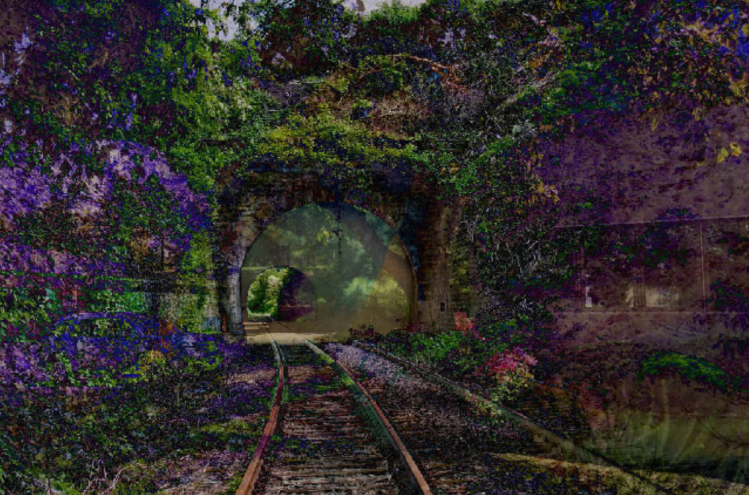
AI and Copyright Law: Why Machine-Generated Content Can't Be Protected
posted Sunday Mar 23, 2025 by Scott Ertz
In a groundbreaking decision, the U.S. Court of Appeals for the District of Columbia Circuit ruled that works generated solely by artificial intelligence (AI) cannot be copyrighted. This unanimous decision, penned by Judge Patricia Millett, has upheld the position of the Copyright Office. This position sent ripples through the creative and tech industries, redefining the boundaries of copyright law in the age of AI.
The Case: Stephen Thaler and the "Creativity Machine"
The case centered around computer scientist Stephen Thaler, who sought to copyright an image titled "A Recent Entrance to Paradise," (seen below) created by his AI system known as the "Creativity Machine." Thaler listed the AI as the sole author of the work, a move that challenged the traditional understanding of authorship under U.S. copyright law. The U.S. Copyright Office denied his application, citing the requirement for human authorship. Thaler appealed the decision, leading to the pivotal ruling by the federal appeals court.

The Ruling: Human Authorship as a Bedrock Principle
Judge Millett's opinion emphasized that the Copyright Act of 1976 requires all eligible works to be authored by a human being. She noted that the statute's provisions, including those related to ownership, duration, and transfer of copyrights, presuppose human authorship. For instance, the duration of copyright protection is tied to the author's lifespan, a concept inapplicable to machines.
Millett argued that machines, lacking minds, intentions, and the experiential depth of human creators, cannot fulfill the requirements of authorship. She stated, "Machines lack minds and do not intend anything," underscoring the fundamental difference between human creativity and machine-generated outputs.
In a colorful critique, Judge Millett referenced the Star Trek character Data, an android known for his attempts at creative expression. She pointed to Data's poetry about his cat as an example of simulated creativity that, while impressive, lacks the human spark required for genuine artistic creation. Millett's analogy highlighted the experiential and conscious elements that underpin authentic art, elements absent in AI systems.
Judge Millett acknowledged that the human authorship requirement might eventually stymie the creation of original works, a policy issue for Congress to address. She noted that the evolution of copyright protection has historically been guided by legislative action, not judicial reinterpretation.
Implications for AI-Generated Content
The ruling reinforces the legal framework that protects human artistic labor, ensuring that AI remains a tool rather than a creator. While works created with AI assistance may still qualify for copyright protection if a human author is involved, the court drew a firm line against granting copyrights to works generated solely by autonomous AI systems.
This decision has significant implications for the burgeoning generative AI industry. Developers and investors must now navigate the necessity of human oversight and collaboration in content creation. The ruling also raises questions about the future of intellectual property rights as AI technology continues to evolve.
Conclusion
The landmark ruling by Judge Patricia Millett underscores the enduring importance of human creativity in the realm of copyright law. By reaffirming the bedrock principle of human authorship, the court has set a precedent that will shape the future of AI-generated content and its role in the creative industries. As debates around intellectual property rights intensify, this decision serves as a reminder of the unique and irreplaceable contributions of human creators in an increasingly automated world.

